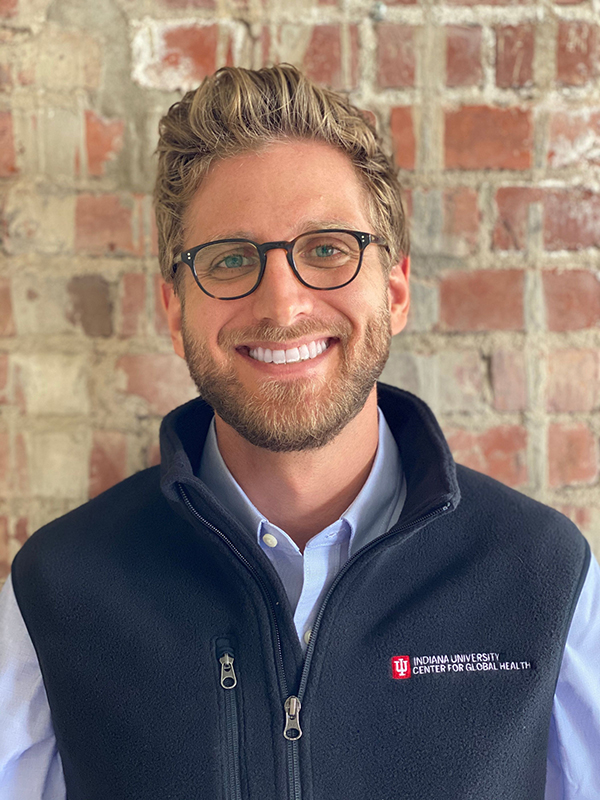Indiana University’s long-term commitment to collaborative global health partnerships and leading with care drew Michael Scanlon, MPH, to his first role as a research assistant nearly a decade ago. This unique partnership model brought him back to IU again last month as the new assistant director of research for the IU Center for Global Health (IUCGH) and the AMPATH partnership in Kenya.
“I recently had the opportunity to read through some early communications from the late 1980s between Drs. Joe Mamlin, Bob Einterz, and others about exploring a partnership between the IU School of Medicine and Moi University School of Medicine,” said Scanlon. “It is amazing to think about what grew out of these early discussions, and while so much has changed since then, it is easy to see these core values of partnership and care driving their work even then.”
Scanlon became a research assistant for Dr. Rachel Vreeman’s pediatric HIV research in 2011 and moved to Eldoret, Kenya, to manage those AMPATH-based projects in 2012. He returned to the U.S. in 2015 to pursue his PhD, but returned to Kenya full-time in 2019 on a Fulbright Student Research Award and Fogarty Global Health Fellowship. His doctoral research focuses on labor relations and strikes in the Kenyan public health sector. Due to COVID-19, his Fulbright and Fogarty fellowships were cut short and he returned to the U.S. as a global health fellow with the Arnhold Institute for Global Health at the Icahn School of Medicine at Mount Sinai before joining the center in his new role in September.
“It is an exciting time to be rejoining AMPATH and the IUCGH. Whether it is confronting the ongoing COVID-19 pandemic, working with county governments in Kenya on new models of care for population health, or thinking about how to replicate the success of the AMPATH partnership in other countries, there is never a shortage of new challenges to tackle,” said Scanlon.
Scanlon said he is drawn to global health research for the opportunity to improve people’s lives. Although the process of translating research into practice can be slow, he believes it is most impactful when it is collaborative, interdisciplinary, and driven by clinical and community priorities. He added that although research dollars and publications are important measures of success, he also measures success in terms of the teams of people it takes to implement complex study protocols and develop the relationships and infrastructure to succeed.
Scanlon added that many people in the global health community are grappling with longstanding questions about practicing global health in equitable and impactful ways, whether in Indiana or western Kenya. “I think wrestling with these types of questions is at the core of a lot of what IUCGH and AMPATH do, and I look forward to continuing these challenging conversations with colleagues as well as sharing our experiences and what we’ve learned along the way with others,” he concluded.



